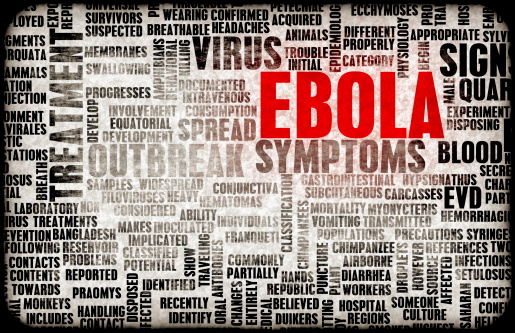When the media hysteria around the Ebola outbreak first hit its peak, I found it impossible to ignore. This story was unfolding in a way that rejected the values of empathy and social justice that had motivated me to begin medical school at Albert Einstein College of Medicine just a few months earlier.
In an effort to comprehend what I saw, heard and read about Ebola, I chose to write about it on my personal blog. To my surprise, several of my classmates approached me to express similar concerns. Their voices began to emerge and I was eager to listen.

Joining the discussion on social justice
The impulse to start a larger conversation led me to get together with some of my peers in an apartment on campus for a discussion about the politics of Ebola. Students from various class years attended, and by the end of the night people left with tangible next steps they felt driven to take. For example, some students devised ways to discuss Ebola in a more accurate way with their own family and friends. Others planned ways to collaborate with student organizations such as Partners in Health Engage, who are organizing a nationwide response. As a whole, we felt united in our conviction that health is a fundamental human right.
Witnessing my classmates inspire each other was one of the most rewarding moments of school thus far. It gave me a renewed sense of hope, focus and determination to unite my passions for medicine and social change.
Though I had already valued self-care, the gathering reminded me that our ability to care for and support each other deeply contributes to our collective well-being.
Expressing ideas, finding community
Though medical school is demanding, I’ve realized that students need opportunities for other kinds of thinking that do not involve an anatomy atlas or a histology slide. We crave spaces to grapple with what is happening in the world around us. Part of being a lifelong learner means engaging with the harsh realities of society that extend far beyond medicine, yet are inextricably linked to it.
Rather than just “survive” medical school, I believe we can instead thrive as long as we are able to find meaningful communities of support. At Einstein, there are many.
As I think about my future career as a physician and the personal difficulties I will face, I know that I will need to continue cultivating communities of people who see justice as something worth fighting for. This is what will keep us going when everything else seems insurmountable.
Many of us are entering medicine today because we believe that a better way is possible; though this belief will undoubtedly be challenged, if we maintain solidarity with one another perhaps we won’t ever have to let it go.

